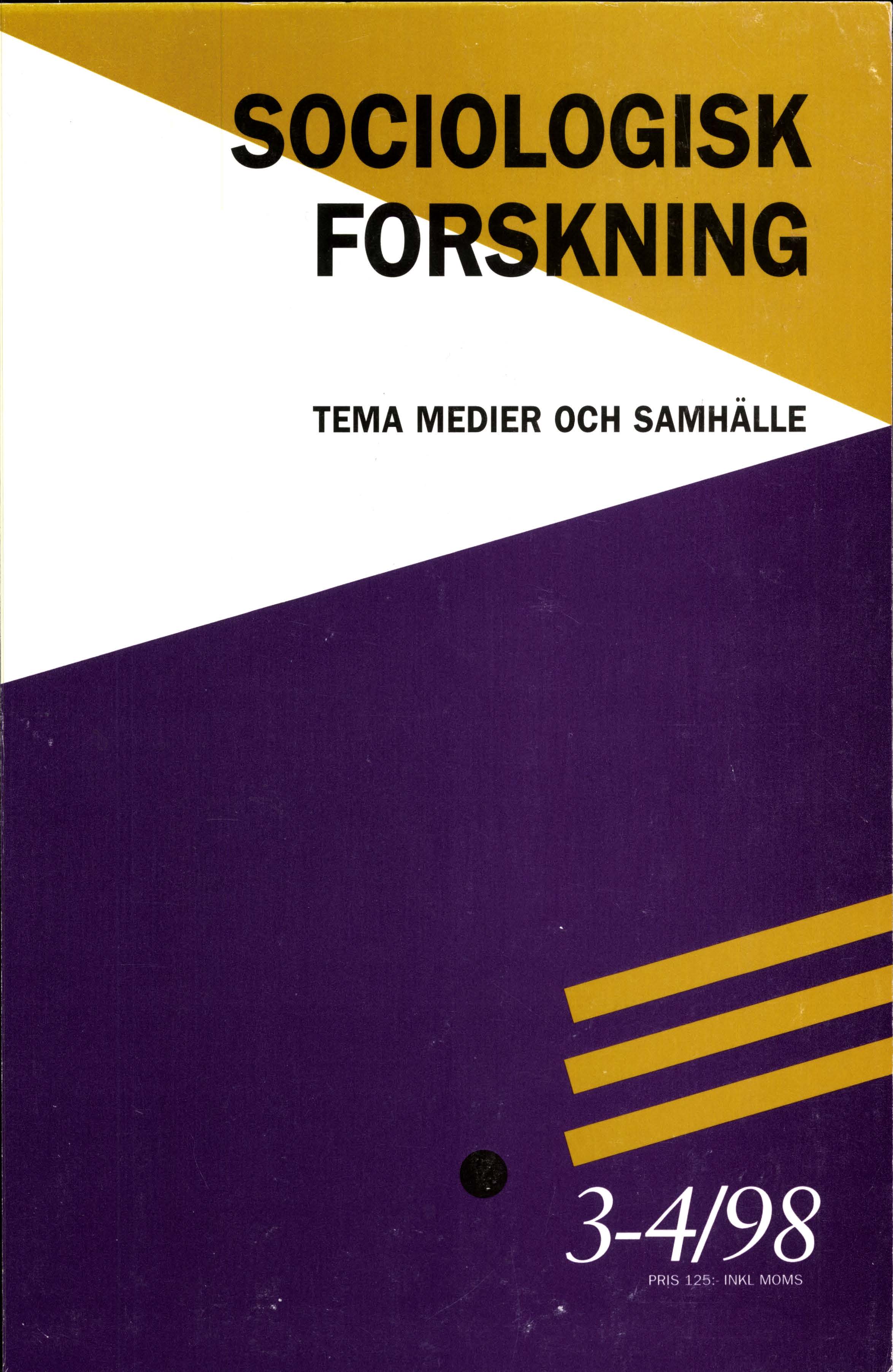Smakernas begränsade frihet
Om kulturindustrins makt över sin publik
DOI:
https://doi.org/10.37062/sf.35.18512Abstract
The limited freedom of tastes - on the culture industry's power over its audiences
Taking Horkheimer and Adorno’s Dialectic of Enlightenment as the main point of departure, this article deals with the question of the culture industry’s power to determine the cultural taste of audiences. Through an overview of literature within foremost political economy (especially about cultural imperialism) and cultural studies (focusing on the meaning creating processes of audiences), a re-evaluation of Horkheimer and Adorno’s original thesis is made. The article concludes that many of the core ideas of the Frankfurt school are still relevant to apply within cultural sociology and media studies. The culture industry’s power over its audiences lies in its potential to make the cultural content accessible to lots of people through the repetition and the successive transition of generic conventions. However, these ideas must be made more dynamic and less elitistic. This means that audiences must be considered as active producers of meaning, situated in specific sociocultural contexts. Without this revision, the perspective of Horkheimer and Adorno is far too rigid to make any good sense within the reflexive cultural climate of late modernity.
Downloads
Published
How to Cite
Issue
Section
License
All content in Sociologisk Forskning is published with immediate open access, under the Creative Commons license CC BY-NC-ND 4.0.
All content may be read, downloaded, shared and printed for non-commercial purposes, free and without fees. Contents may not be altered. When content is reused, author, source and a link to the copyright licence must be provided. The author retains copyright to their content. No publication fees are charged.





